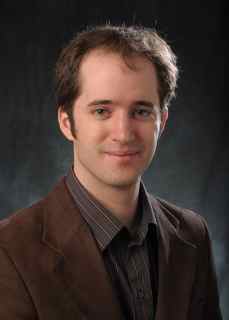Bio Sketch

Professor
Department of Mechanical Engineering
Education
- Ph.D., Chemical Engineering, California Institute of Technology, 2007
- B.S., Chemical Engineering, University of Washington, 2001
- B.S., Chemistry, University of Washington, 2001
Professional Recognition
- Outstanding Service Award, CU Mech Eng., 2021
- S.P. Chip and Lori Johnson Faculty Fellowship, CU Mech Eng., 2017-
- Outstanding Research Award, CU Mech Eng., 2015
- Provost's Faculty Achievement Award, CU Boulder., 2014
- Dean's Jr Faculty Performance Award, CU College of Eng., 2013
- Woodward Outstanding Faculty Award, CU Mech Eng., 2013
- Outstanding Research Award, CU Mech Eng., 2012
- Sullivan-Carlson Innovation in Education Award, 2012
- Charles C. Gates Faculty Fellow, 2012-2015
- Outstanding Undergraduate Education Award, CU Mech Eng., 2011
- NASA New Investigator Program, 2010
- EPA Early Career, 2009
- Earth Institute Postdoctoral Fellowship, Columbia University, 2007
- William and Sonya Davidow Graduate Fellow, Caltech, 2007
Research Interests
- Aerosols and air quality
- Climatology and atmospheric chemistry
- Adjoint sensitivity analysis
- Remote sensing
- Data assimilation and inverse modeling
- Energy systems optimization
Our group's research focuses on the role that atmospheric constituents such as ozone, nitrogen oxides (NOx) and particulate matter (aerosols) play in local air quality, long range pollution transport, and climate change. Numerical models of chemical and physical processes in the atmosphere provide valuable estimates of the sources and fates of these species. In addition, space-born measurements and coordinated field campaigns provide an unprecedented wealth of observations related to the chemical state of the atmosphere. A large part of our research stems from chemical data assimilation, the process by which both models and observations are combined to produce estimates of the atmospheric state that are often more complete than those provided by either approach alone. These estimates are used in applications from constraining emissions to optimizing energy system models to achieve specific air quality and climate objectives. This encompasses more specific interests in remote sensing, adjoint sensitivity analysis, inverse problems, and source apportionment. Find out more about current research projects.
Contact
- CU Mechanical Engineering Dept
- 1111 Engineering Drive UCB 427
- Boulder, CO 80309
- 303-492-8716
- https://cuboulder.zoom.us/my/davenhenze
- Engineering Building, ECNT 160B
- Campus Map